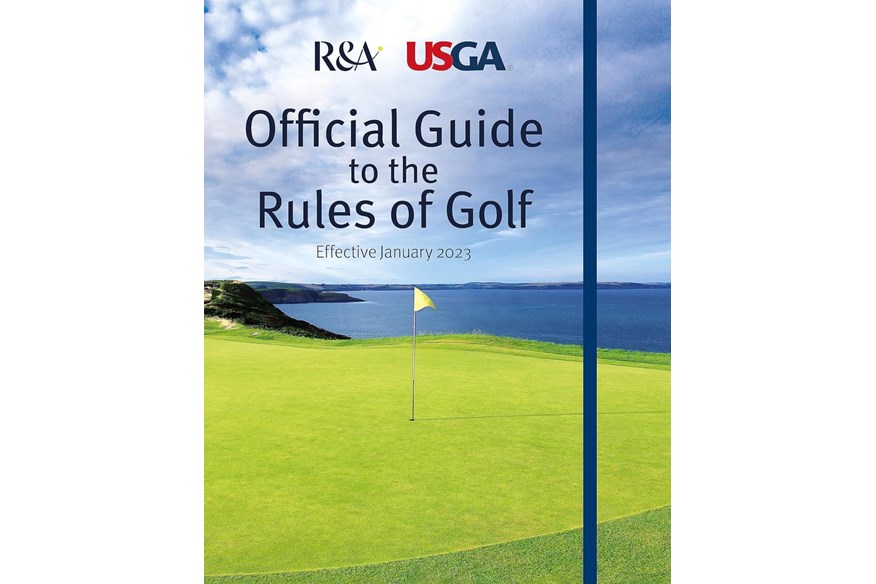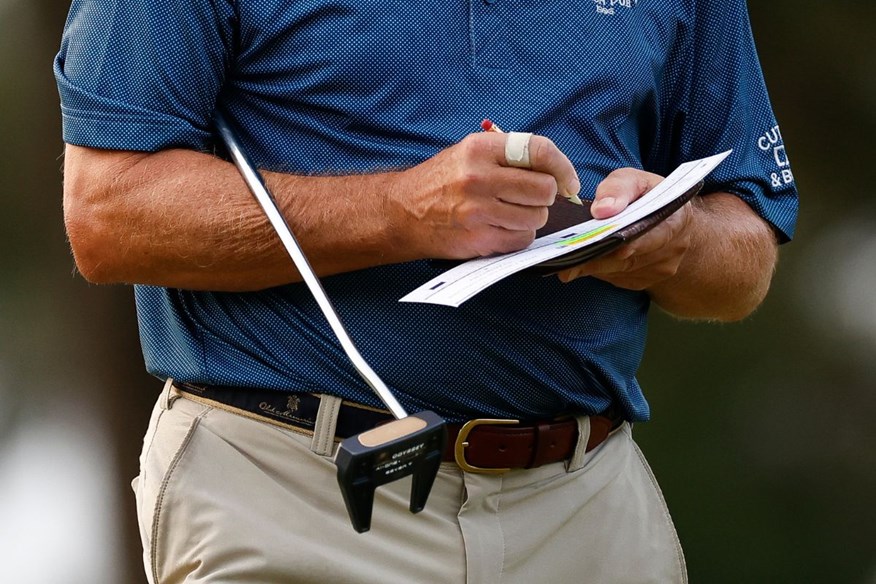The big WHS debate: Should every round count towards your handicap?
Published:
General Play scores are meant to make golf handicaps more accurate, accessible, and fair. But, nearly five years after the World Handicap System was introduced, confusion still reigns – especially around how often you should be submitting them. Here’s what the rulebook and the real world say.
Gone are the days when your handicap could only shift via competitions. Now, almost any casual round can count – as long as it’s pre-registered and played under the Rules of Golf. That sounds like a win for flexibility, especially for golfers who can’t always tee it up in the weekend comp.
But in practice? It’s been a gray area since day one.
Now, in clubhouses across the UK, there’s growing tension around how some players – and clubs – are using the system.
Some golfers are being pulled aside by committee members or golf club managers and asked why they’re submitting “so many” General Play scores. Others are being told the opposite – that every eligible round should be going in. So what does the rulebook actually say? And is there such a thing as too many General Play scores?

What scores can and should you submit under WHS?
Let’s start with the official rules. According to Rule 2 of the Rules of Handicapping, a round can be submitted if it ticks these boxes:
- It’s played in an authorised format (individual strokeplay like medal, stableford, bogey, etc – but not match play).
- You register it before teeing off.
- You play with at least one other person who can act as a marker.
- You follow the Rules of Golf.
- The course has a current Course Rating and Slope Rating and is in its active season.
So solo rounds, matches, and team events don’t count. Everything else can.
But does that mean you should submit every eligible round?

What England Golf says
We’ve established which rounds can and can’t count, but that doesn’t clear up whether golfers are encouraged to enter every round they play – or if there’s a point where you’re overdoing it.
So I reached out to England Golf for clarification.
Sarah Barter, Head of Handicapping and Course Rating, said:
“While it’s up to each player to keep their handicap record up to date, we really encourage them to submit as many scores as they can, whether they’re from General Play or Competitions. The more scores in their record, the more accurate their playing ability will be.
“We know there are some concerns around General Play scores, but there are plenty of tools available on the WHS platform to help clubs check the validity of scores and, in rare cases, confirm manipulation is taking place. We recommend clubs use these reports to make sure their players understand their responsibilities and to act if necessary. With these checks in place, there’s no reason why General Play scores should be discouraged.”
So their stance is clear: you’re encouraged, though not obliged, to submit as many General Play rounds as possible.

How it works in the US
In America, there’s no debate: every acceptable round must be submitted – including match play rounds. That even includes situations where holes are conceded. How?
They use something called a “Most Likely Score”, which means:
- If you’re inside 5 feet of the hole, add one stroke.
- If you’re between 5 feet and 20 yards, add 2 or 3 strokes depending on the position of your ball, the difficulty of the green, and your ability.
- From more than 20 yards, add 3 or 4 strokes based on the same factors.
So if you lag a birdie putt to a foot and your opponent concedes it, that’s a par. If your opponent concedes when you’ve got 20 feet for par, you record a bogey, unless you’re particularly awful at putting – in which case you’d assume a three-putt and count that. It’s subjective, but it means no round is wasted.
They even account for matches that finish before the 18th hole.
If the match ends before the last hole, and you go on to play the remaining holes, you simply record your actual scores for those holes.
If you return to the clubhouse without playing the remaining holes and the match lasted between 10-17 holes, your score must be posted hole-by-hole so that an 18-hole Score Differential can be determined for your round.
Since at least nine holes must be played for a score to be acceptable, if a nine-hole match ends early and you return to the clubhouse without playing the remaining hole(s), that score would not be acceptable for handicap purposes.

Should you have to submit every score towards handicap? The pros & cons
In the UK, you’re not required to submit every eligible round – but should you? Here are some pros and cons of submitting all rounds.
Pros:
- Your handicap is more accurate
In theory, entering every round means your handicap is the truest possible reflection of your actual ability. I say ‘in theory’ because you could argue that entering scores that are likely to be worse than normal – rounds played in particularly unfavorable conditions or when you’re carrying an injury, for example – might increase your handicap higher than it would be in normal circumstances. But the fact that your handicap is calculated on the best eight of your last 20 rounds should negate that issue to a large extent. - It could combat sandbaggers
Some feel that insisting all rounds be entered for handicap purposes would combat ‘sandbaggers’ – unscrupulous golfers who avoid putting in scores until an important match or competition rolls round, therefore giving themselves an advantage by keeping their handicap higher than it would be if they entered more scores. I’m not sure making General Play scores compulsory would solve this, though, as such golfers could deliberately score poorly in General Play rounds to artificially inflate their handicap.
Cons:
- You can’t just play a relaxed round
Sometimes you just want to play golf, mess about with a new club or swing thought, and not worry about score. Recording every round could take that freedom away. - Pace of play
Anyone who plays weekend competitions will know that the pace of play tends to be considerably slower than it is in normal circumstances. In casual rounds, golfers will often be more relaxed about hitting provisionals off the tee, penalty drops, gimmes, etc, which helps keep things moving. If every round becomes a scoring round, I can only see things slowing down. - The ‘most likely score’ is subjective
No one is going to start taking a tape measure out to determine whether their ball was within 5 feet of the hole, or between 5 feet and 20 yards, and so on. Then there’s the “depending on the position of the ball, difficulty of the green, and your ability” element – none of which feels particularly scientific or consistent. Let’s be honest: most golfers aren’t great at estimating how many shots they’d probably have taken.

What amateur golfers think
“I always decide before the round whether or not I’m going to be recording my score. Most of the time I do, but if I’m going out specifically to work on something or try something new, I will decide it’s a practice round beforehand and not record my score.”
“I have some rounds that are declared practice rounds. Testing two different balls. Picked up a new 3-wood and trying to use it as much as possible. I’ll keep score, but these are not submitted scores to count on the handicap. I only post more serious rounds.”
“I’m happy putting a card in every time as in my opinion it will give a true graph of your golf over a full season. Some of my colleagues prefer to just accept a counter during medals and opens etc. Their point is that comps are for handicaps and bounce games are for tweaking and experimenting.”
My take
As a UK golfer, I like having the option of whether to record my score or not. Some days I want to grind out a proper score and see where my game’s really at – whether that’s in a competition or when recording a General Play score – but sometimes I want the freedom to experiment or hack it around with mates and not care about score.
Any handicap system will be open to abuse by those who want to abuse it. Making it mandatory to record every score wouldn’t stop those seeking to gain an advantage from deliberately scoring poorly to give themselves an advantage in future competitions.
So where does that leave us? Probably somewhere in the middle. If you want a handicap that genuinely reflects how you normally play, submit as many scores as you reasonably can. But don’t feel guilty for leaving a card out when you’re testing new gear, playing a scramble, or just enjoying a carefree round. As long as you’re being honest with yourself, that’s really all the WHS – and your fellow golfers – are asking for.
Don't want to get caught out during a round? This is a must for all club golfers!



